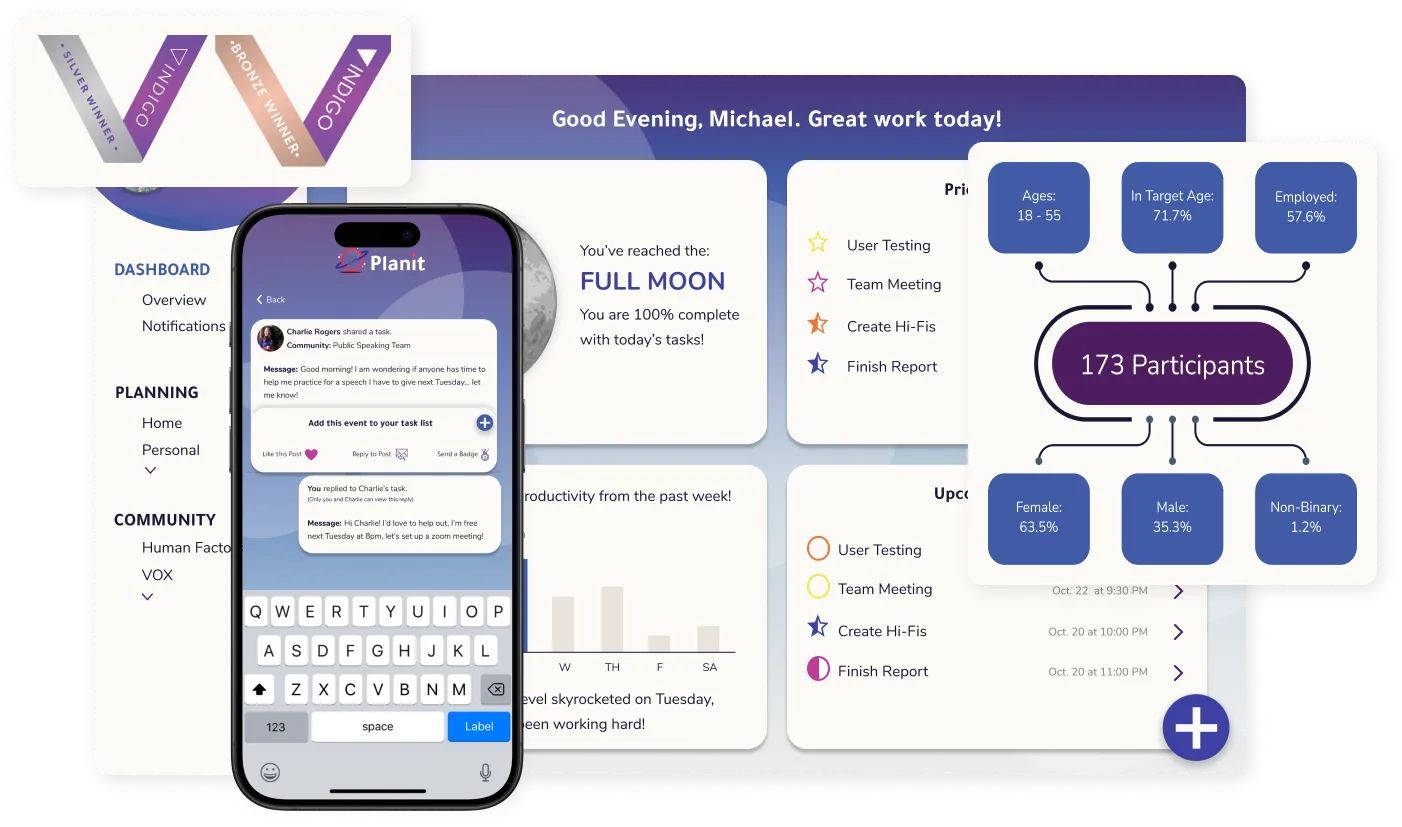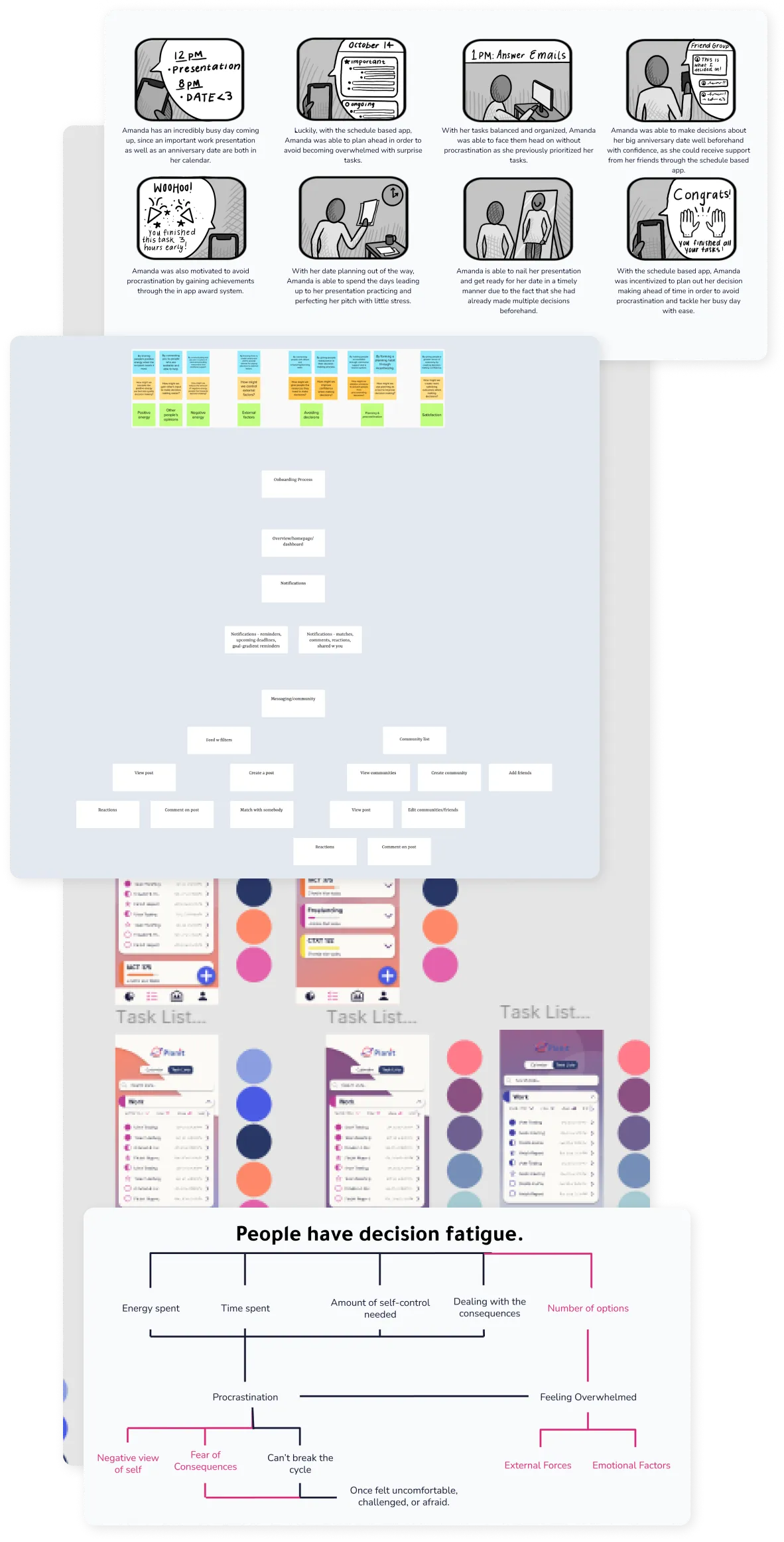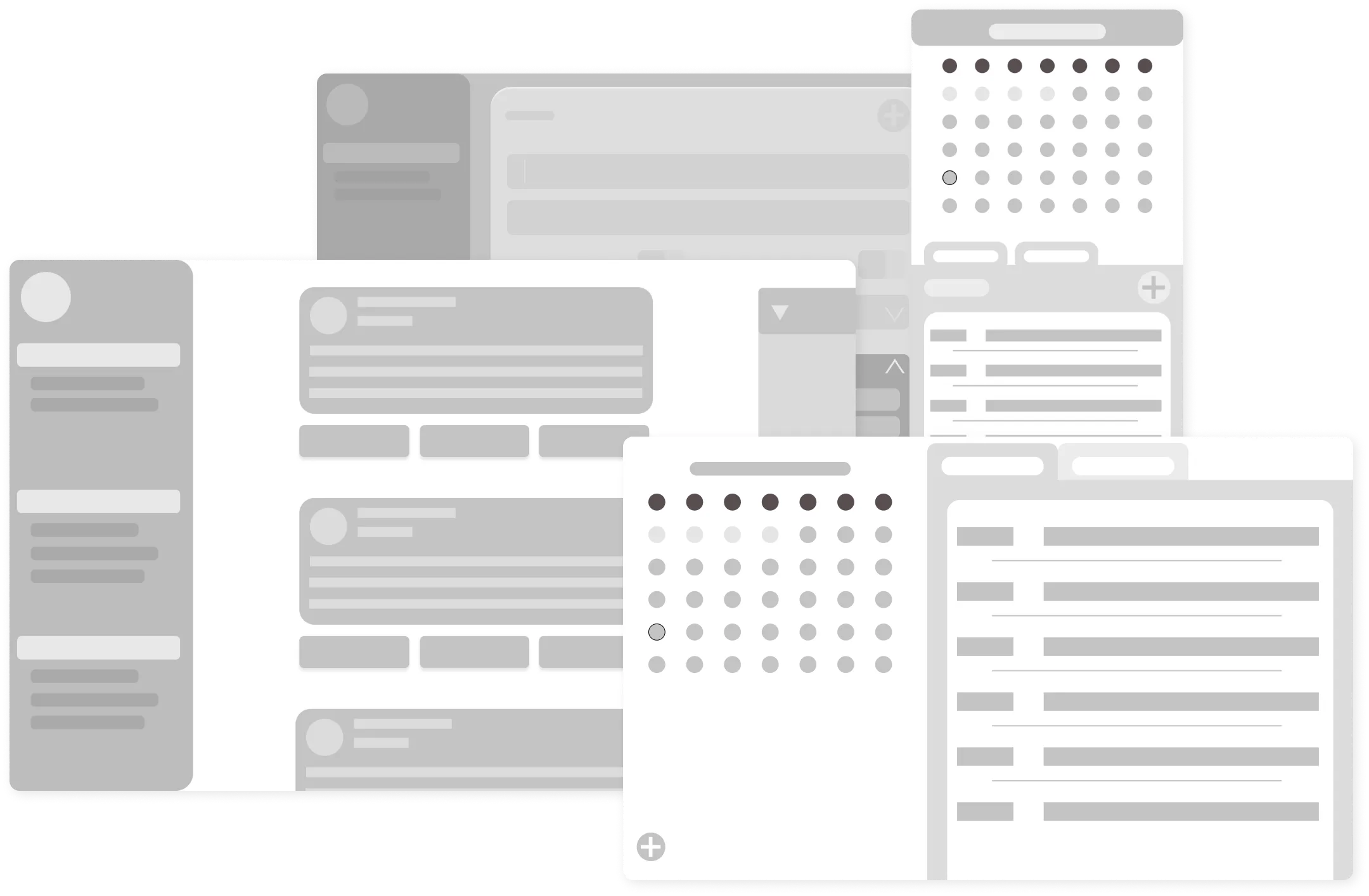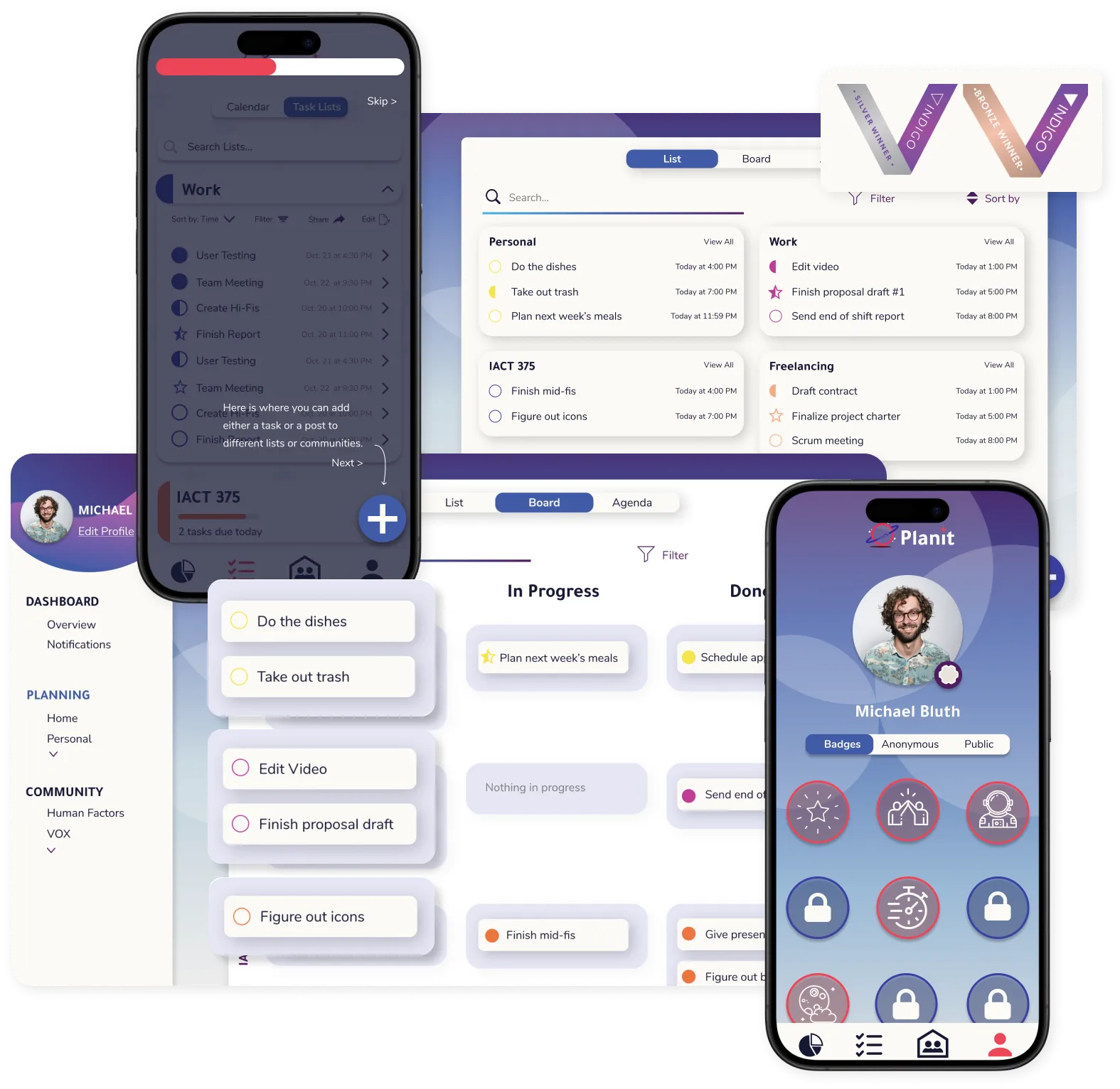
Planit
I leveraged psychological user research to find a way to make planning fun and engaging, even for unmotivated people.

Project highlights
Led an academic-based research initiative to understand the psychology behind decision-making and human factors
Synthesized and shared qualitative and quantitative data in a root cause analysis
Designed an integrated onboarding experience that prevents burnout before discovering value

Discover the Product
Planit was built on extensive user-centered research. We conducted interviews, ran A/B tests, created cultural probes, collected surveys, and reviewed the market. That led to about 700 data points that we tracked and affinitized, resulting in 28 key insights that drove the following design process. We continued to push our understanding through exercises like a factor tree diagram and “five whys,” revealing a uniquely human requirement: people procrastinate because they avoid things that make them uncomfortable, challenged, or afraid. This gave us a root cause to build our product around.
Tools Used





Knowing how deeply procrastination runs in our users' lives, we built an ecosystem of products that reshaped how our users thought about getting stuff done. Our designs on web, mobile, and wearables each served a unique purpose and filled a different part of the user's needs. As we built iteratively, we also developed and integrated a friendly brand personality driven by game design principles and psychological reward systems.
Tools Used



Deliver the Results
Planit was delivered as a fully prototyped product experience across three mediums. We shared and defended our research, as if it were a dissertation, to support our product design and business strategy. Planit went on to win four Indigo Awards in UX navigation, website design, and mobile apps.
Tools Used


